The Leadership Reaction Course is an important component of your leadership grade at Marine OCS. It is not as heavily weighted as SULE, but the skills practiced in the LRC will carry forward to SULE.
Essentially, the LRC is a group of mini challenges and obstacles that are carried out as a fire team. Every candidate will be required to take the role of a fire team leader and attempt an obstacle.
Candidates are given a set amount of time to receive an order, create an order, issue the order, and execute. The LRC is very time constrained and it’s important that you are completely competent when it comes to the Operations Order.
HIGH SCORES ARE NOT RELIANT UPON WHETHER OR NOT YOU COMPLETE THE OBSTACLE!
This is the most important point that you should take away from this information. It’s not about actually completing the challenge successfully. Some of the obstacles are ridiculously difficult to complete and take more time and people to actually accomplish the task. The LRC is all about leadership perception. Candidates must show qualities such as:
- Decision Making
- Adaptability
- Confidence
- Ability To Convey Orders Quickly
All of these qualities can be demonstrated without successfully finishing the obstacle.
These tips are derived from personal experience, and feedback that candidates received from instructors. Make a note of these and take them with you to OCS. Practicing these ideas will make a difference in your LRC grade and help you better develop leadership skills.
1. Give A Complete Operations Order
 This is a tough thing to do given time constraints, but do not fall victim to panic and rush things. The instructor will give you a very quick and chopped up order that you must then turn into something that is complete and concise within about a minute. Candidates will likely not receive more than 20% of the information that goes in the order. The other 80% is essentially going to be made up.
This is a tough thing to do given time constraints, but do not fall victim to panic and rush things. The instructor will give you a very quick and chopped up order that you must then turn into something that is complete and concise within about a minute. Candidates will likely not receive more than 20% of the information that goes in the order. The other 80% is essentially going to be made up.
For instance, it is almost guaranteed that you won’t get information for the Administration & Logistics section of the order. If your not sure what this means you just have to know that the section contains information about food, ammo, prisoners of war, and casualties. If your instructor doesn’t give you this information then just say something like, “chow will be resupplied on the objective, ammo is whatever you are carrying, POWs and casualties go to the Platoon Sergeant.”
 A common mistake that candidates make is to skip entire sections of the order because it has no impact on carrying out the actual mission. As mentioned earlier, this is not about finishing the obstacle. The instructors are literally holding a grading sheet that has check boxes next to each component of the order. All you have to do is at least say the name of the section and “none”, or “no information.” A lot of candidates do great showing leadership, but they get hit hard on their grade because they failed to give a complete order.
A common mistake that candidates make is to skip entire sections of the order because it has no impact on carrying out the actual mission. As mentioned earlier, this is not about finishing the obstacle. The instructors are literally holding a grading sheet that has check boxes next to each component of the order. All you have to do is at least say the name of the section and “none”, or “no information.” A lot of candidates do great showing leadership, but they get hit hard on their grade because they failed to give a complete order.
2. Develop A 60% Plan
As the saying goes, “it is better to have an instant 60% solution than a 100% solution that is delayed.” From the second the instructor finishes giving an order, you must come up with a solution while you are starting to write your own order. It probably won’t be perfect, but you just have to go with it and make changes throughout the execution.
The worst thing you could do is hesitate when assigning tasks. Even if your tasks are vague you must be confident in your plan.
3. Don’t Be The One Carrying Out The Plan
 Candidates have a tendency to take control of the physical execution of a plan.
Candidates have a tendency to take control of the physical execution of a plan.
For instance, if the mission is to build and cross a bridge then the fire team leader immediately starts moving lumber and runs across first.
This is not the way to go here.
The fire team leader must maintain a leadership role. If you start building the bridge yourself then how are you supposed to lead the fire team.
Leaders should position themselves in the middle of the group to maintain control. They should give orders to others and observe closely so that changes and new decisions can be made.
4. Adapt Quickly To A Changing Environment
 The plan will not go smoothly, and if it does then the instructor will throw in some twist to make it more difficult.
The plan will not go smoothly, and if it does then the instructor will throw in some twist to make it more difficult.
Here is an example:
The mission is to climb over a fence to deliver supplies and then return. You send 1 candidate over with the supplies and he delivers it successfully. The instructor doesn’t like that your plan is working so he tells you that the candidate you sent over was just sniped in the head. Now you must go retrieve the body.
Part of the evaluation process is making sure candidates can come up with new plans and develop decisions on the spot. Don’t be thrown off by unexpected events.
5. Scraping The Original Plan Is Not A Bad Thing
This is a tip that came up a few times from various instructors. Sometimes the 60% plan just doesn’t work. If you spend the entire duration of the course continually attempting to do something that clearly isn’t working you are hurting yourself. There is nothing wrong with pausing for a few seconds, calling in your fire team, and working together to develop a new plan. Get help from other candidates, but make sure that you first demonstrate that you can come up with a plan on your own.
The Leadership Reaction Course is a very challenging and time constrained event. Some candidates end up falling into water while others have to hang on to an ammo can with every muscle in their forearm. There are going to be enjoyable aspects to the course, but main thing is to stay focused and pay attention to everything. If you aren’t the first one to be the leader you should be learning from other candidates’ mistakes. Remember that you are graded on leadership not successfully finishing the obstacle.

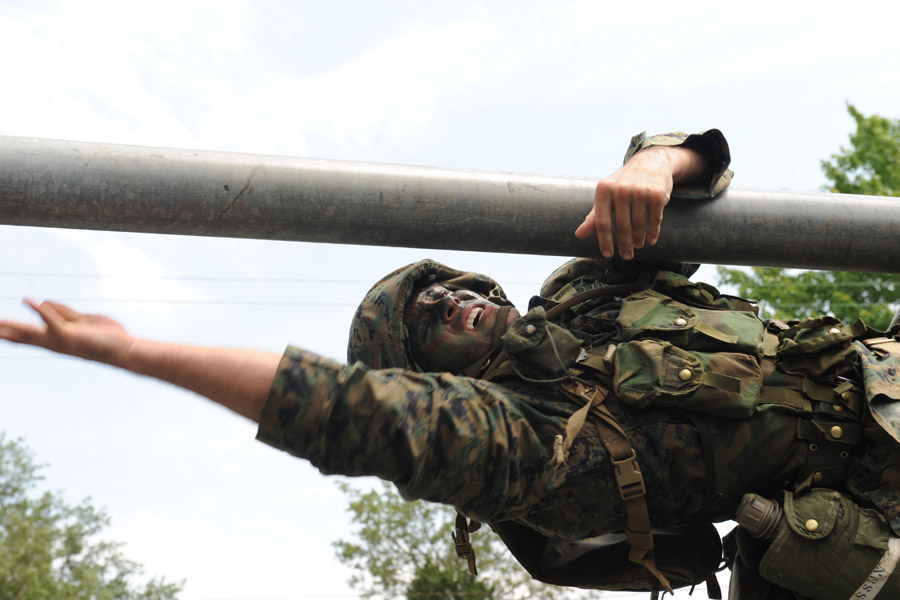
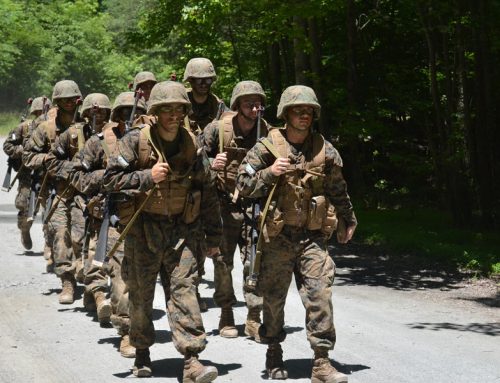
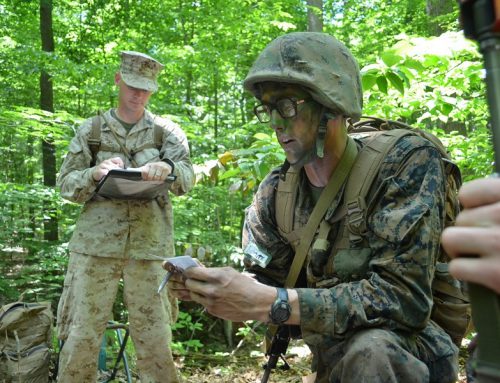
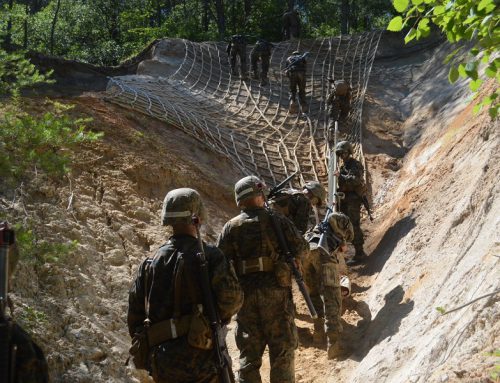
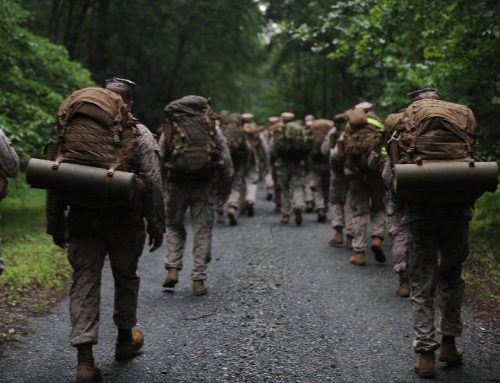
Good read sir!